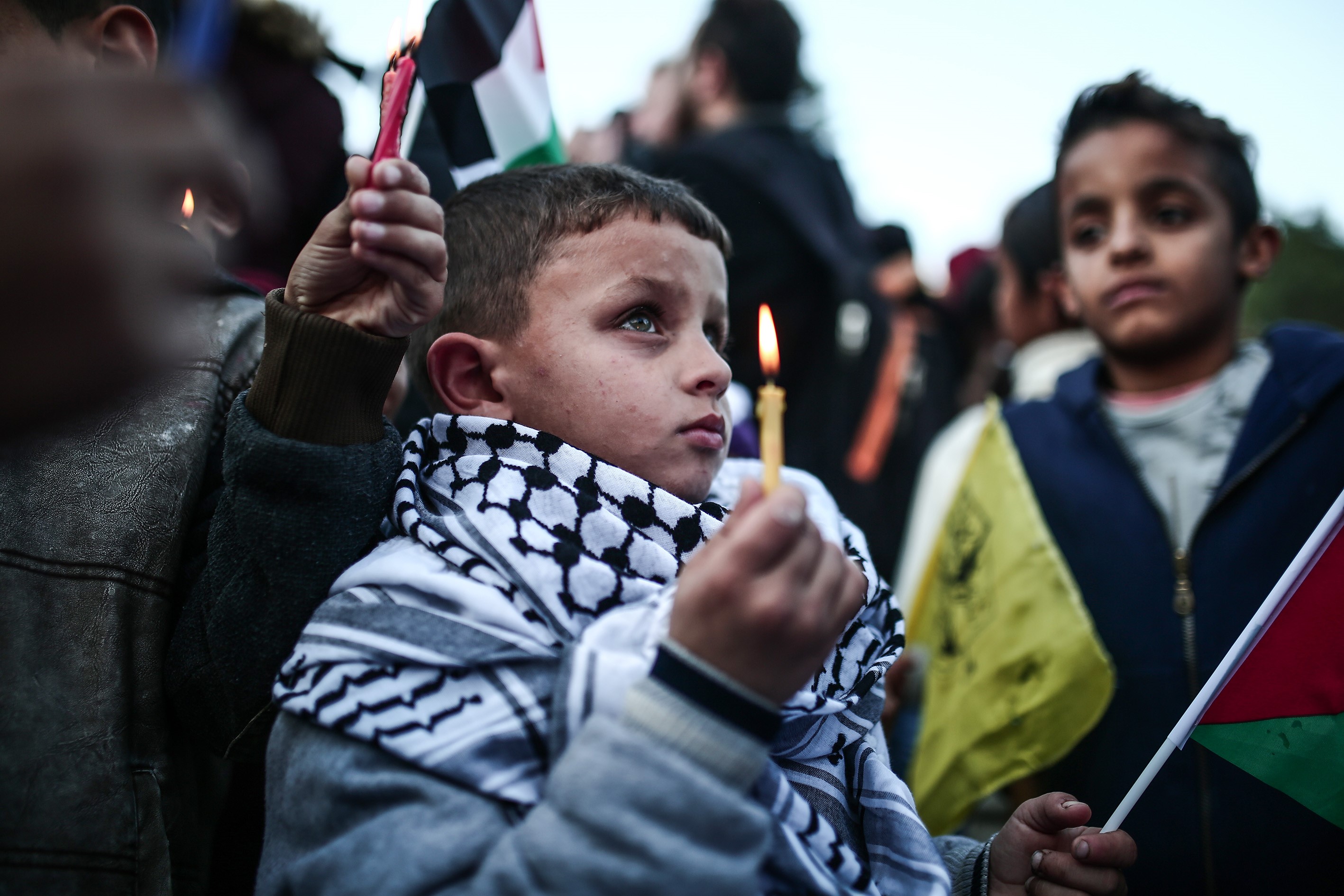Holy land coordination 2018
The Gaza Strip was the first destination of the visit to the Holy Land of the bishops members of the Holy Land Coordination (US, Canada, EU and South Africa). In the Catholic church of the Holy Family, with a congregation of only 138 faithful, the bishops listened to the words of the parish priest, Fr Mario Da Silva, along with the cries of local youths, yearning to continue living in their lands but forced to leave as a result of increasingly difficult living conditions and of fundamentalist drives

 (from Gaza) The last Israeli air raid dates back to the night of Saturday, January 13th and Sunday 14th. Jets of the Israeli air force bombed an area to the east of the city of Rafah, on the border with Egypt, destroying a tunnel supposedly dug by Hamas, linking Egypt to Israel. But the parish priest of Gaza, Father Mario Da Silva, from Brazil, of the Institute of the Incarnated Verb (IVE), doesn’t seem too upset. Since his arrival to Gaza six years ago he witnessed two wars: “Pillar of Defence” in 2012 and “Protective Edge” in 2014. The rubble testifies to its legacy – buildings to be repaired, infrastructures to be rebuilt – along with widespread anger combined with the resignation of two million inhabitants with an average age of 17.7 years (2011 figures), forced to live in a 378 square km. open-air cage with low water-supplies and only few hours of electricity per day. While “waiting for the next war that we hope will never arrive – the priest said – we do our best to support the local inhabitants who are suffering more and more every day because they see no future ahead of them. Unemployment reached sky-rocketing figures.” The situation is known to the approximately one thousand Christians still living in the Gaza Strip – they were over 1700 six years ago, of these, only 138 are Catholic and they belong to the parish of the Holy Family located in the eastern area of al-Zeitun. They don’t want to speak of an extinction of Christians in Gaza:
(from Gaza) The last Israeli air raid dates back to the night of Saturday, January 13th and Sunday 14th. Jets of the Israeli air force bombed an area to the east of the city of Rafah, on the border with Egypt, destroying a tunnel supposedly dug by Hamas, linking Egypt to Israel. But the parish priest of Gaza, Father Mario Da Silva, from Brazil, of the Institute of the Incarnated Verb (IVE), doesn’t seem too upset. Since his arrival to Gaza six years ago he witnessed two wars: “Pillar of Defence” in 2012 and “Protective Edge” in 2014. The rubble testifies to its legacy – buildings to be repaired, infrastructures to be rebuilt – along with widespread anger combined with the resignation of two million inhabitants with an average age of 17.7 years (2011 figures), forced to live in a 378 square km. open-air cage with low water-supplies and only few hours of electricity per day. While “waiting for the next war that we hope will never arrive – the priest said – we do our best to support the local inhabitants who are suffering more and more every day because they see no future ahead of them. Unemployment reached sky-rocketing figures.” The situation is known to the approximately one thousand Christians still living in the Gaza Strip – they were over 1700 six years ago, of these, only 138 are Catholic and they belong to the parish of the Holy Family located in the eastern area of al-Zeitun. They don’t want to speak of an extinction of Christians in Gaza:
“We don’t want to put up with the wall that surrounds us, with the lack of freedom
and of dignified living conditions. We want to continue to live here, but we need material and spiritual support”, pointed out the priest who in 2017 celebrated a marriage, a funeral and three baptisms in his parish.
Help Christians to stay. Yesterday, Sunday January 14, the small Catholic community of Gaza received the visit of the bishops of the US, Canada, EU, and South Africa, members of the Holy Land Coordination, a delegation of bishops created on the invitation of the Holy See with the purpose of supporting Christian communities in the Holy Land. Mass celebration and the meeting with young people, who spoke about their life in the Strip, were the highlights of this greatly-anticipated visit.
“Our mission – Father Da Silvia told the bishops – is to preserve Christian faith, help them face also fundamentalist drives requesting conversion to Islam. Such pressures, coupled by the difficult economic and social conditions, ultimately cause the departure of Christians from Gaza.
There ensues the need to pray with them, to visit them in their homes, to speak about their problems and try to find a solution. We organized many activities for children and young people which enable us to be near them. We have our own schools, old-age homes, recreational centers: it’s our answer to the difficulties of this land.” The toughest job is to make sure that Christians continue living here.
Young people decide to leave because they are unemployed, they have no freedom nor rights.
And that’s why many of those who obtain permissions from Israel to leave Gaza never return. Ours is a small community, your visit makes us stronger and doesn’t make us feel like we’ve been abandoned.”
The challenge of the family and of employment. “All we want is a job and the opportunity to have a Christian family”, said Rami Tarazi, 24, unemployed, during the meeting with the bishops.
 “We are a small minority, and the political and social situation doesn’t help. We wish we had the possibility to be included in employment programs. There are many Christian organizations working in this area but it’s not enough. Sometimes there’s no room for us.”
“We are a small minority, and the political and social situation doesn’t help. We wish we had the possibility to be included in employment programs. There are many Christian organizations working in this area but it’s not enough. Sometimes there’s no room for us.”
At present 30 youths from the Gaza Strip are involved in job-creation projects promoted by the Latin Patriarchate of Jerusalem, by the Pontifical Mission and by Caritas Jerusalem. “Without their help – Father Da Silva said in clear terms – we would have had to close down our parish church.” A new project, due to be finalized by March, is addressed to 10 youths who, the priest said, “will have the possibility of attending intensive English-language courses to extend their job opportunities coupled by theology classes to receive appropriate formation enabling them to provide catechesis and religious formation to children and youths.”
“You are not alone.” Said Msgr. Stephen Brislin, archbishop of Cape Town during the Holy Mass. He recalled the experience of apartheid in South Africa to send a message of hope. “We come from Countries with experiences of war, oppression, hatred and discrimination. We need hope, and that’s why we need to be operators of solidarity.”
We cannot stop in the face of injustices.
We respond to violence and hatred with a culture of peace and reconciliation.” However, these words are hard to implement in Gaza, where the agreement of past October 12 between the two rival groups – Fatah and Hamas – failed to deliver significant results, and where the decision of US President Donald Trump to recognize Jerusalem as capital of Israel triggered heated protests and tensions that led to the death and wounding of some protestors as a result of clashes with Israeli security forces.
https://youtu.be/9SLY0Mii2Cw